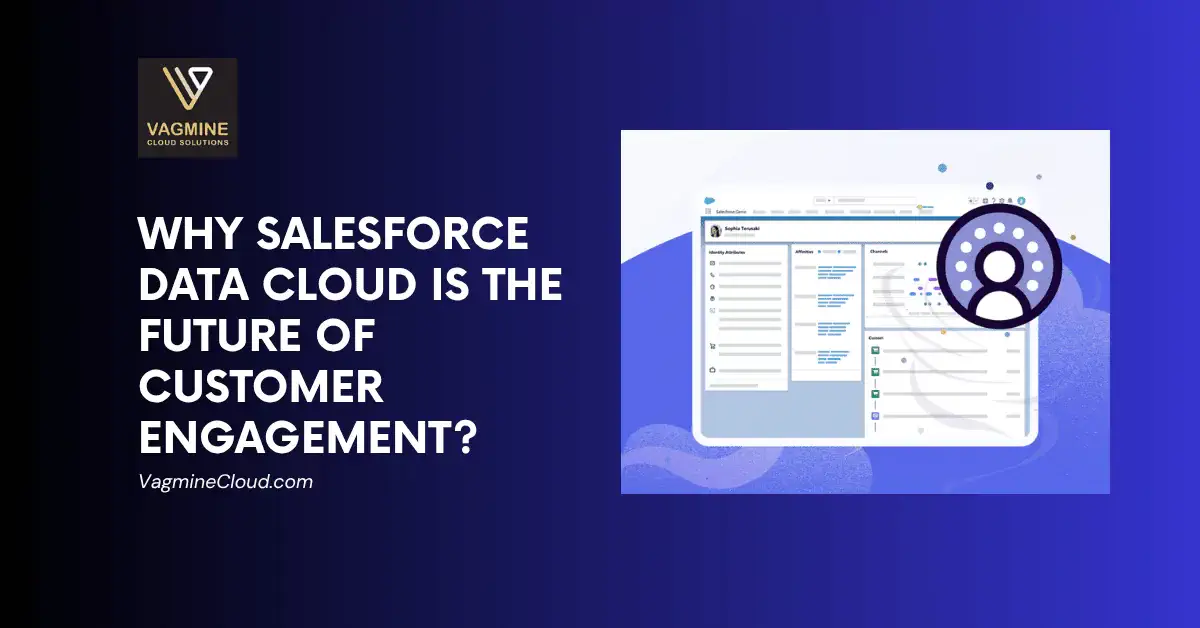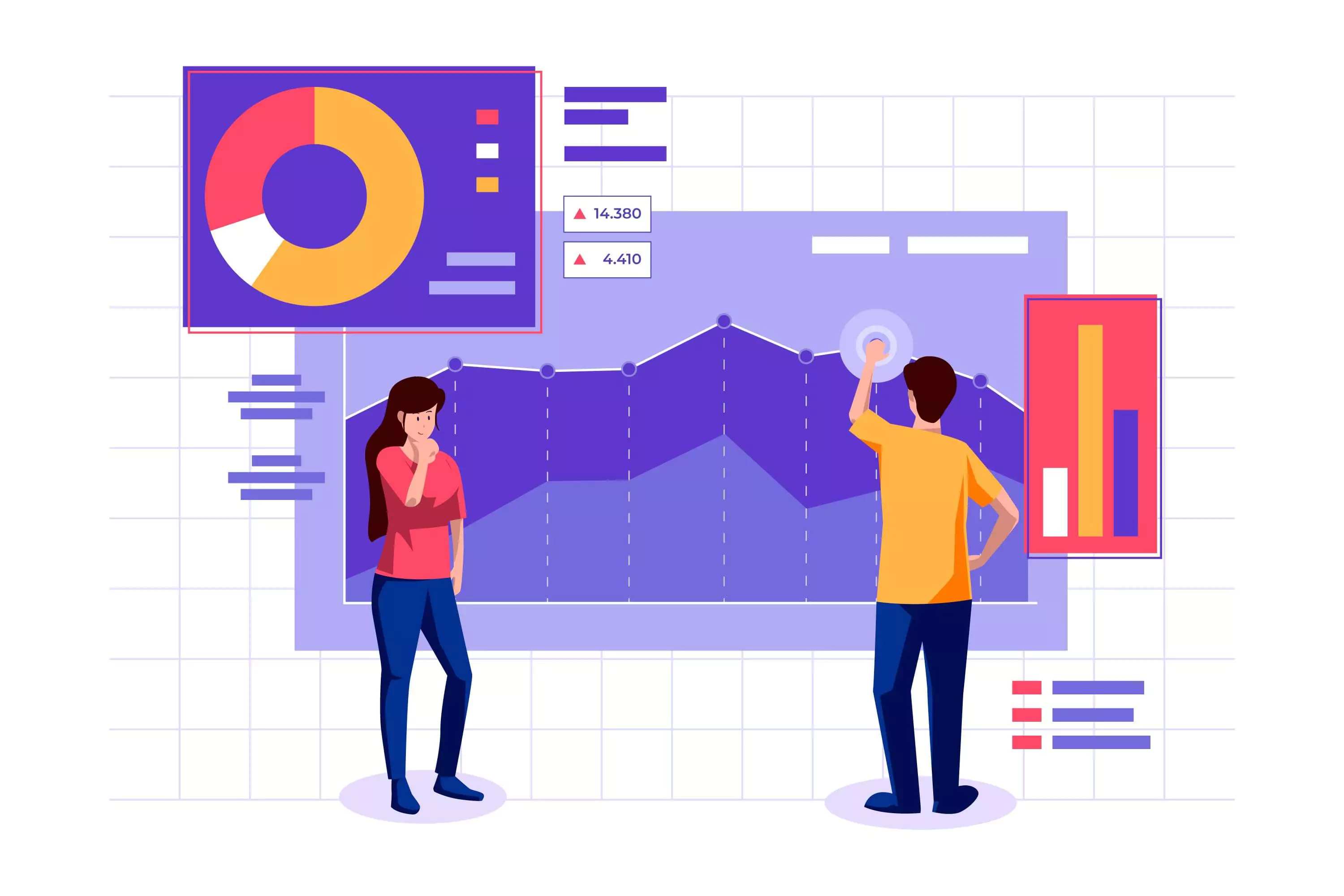
Salesforce Data Cloud is an effective platform that enables organizations to collect and leverage customer information instantly. It collects data from various sources, such as website interactions, email communications, purchases, and support tickets, and transforms it into informed actions through the application of AI and automation.
Its main advantage lies in its capacity to integrate diverse data types originating from sales, marketing, customer service, and external platforms into a single, cohesive repository. This provides all departments with a unified, complete understanding of the customer.
This eliminates scattered data and disconnected records. Now, your marketing department can identify if a customer has open support cases, your sales team can access the products a customer has viewed, and your support team can assist proactively.
This approach supports a faster and customized business approach, essential for competitive advantage in today’s evolving marketplace.
What Is Salesforce Data Cloud?
Salesforce Data Cloud is a real-time hyperscale data platform built natively on Salesforce. It ingests, harmonizes, and activates massive volumes of customer data from multiple sources—CRM, mobile, web, APIs, and external systems—into a single source of truth known as the Unified Customer Profile.
With native integration into the entire Salesforce Customer 360 ecosystem, it empowers businesses to deliver context-rich, dynamic engagement across sales, service, marketing, and commerce channels.
Why Salesforce Data Cloud the Future of Customer Engagement?
1. Unified Customer Profiles
A Unified Customer Profile within Salesforce Data Cloud consolidates all customer information from sales, marketing, customer service, website interactions, mobile applications, and external platforms to create a single, real-time, comprehensive view. This profile is consistently updated with new interactions, giving all teams access to the most recent customer data. This breaks down data silos and facilitates consistent, tailored engagement across all customer contact points.

Consider a scenario: a customer buys a product, browses a website upgrade option, and opens a support ticket. The Unified Profile presents this data in a single location. A support agent can quickly address the issue and suggest a relevant upsell, boosting customer happiness and revenue. This capability enables businesses to operate more effectively and intelligently, creating more connected and impactful customer experiences.
2. Real-Time Data Activation
Real-Time Data Activation in Salesforce Data Cloud means using live customer data the moment it’s captured—to trigger actions, personalize experiences, or update systems instantly across your Salesforce ecosystem. Instead of waiting hours or days for batch updates, businesses can respond in milliseconds to what a customer is doing right now.
This feature connects Data Cloud to Salesforce apps like Marketing Cloud, Sales Cloud, Service Cloud, or external systems through activation targets such as journey builders, flow triggers, and decision-making engines.
Example:
A customer is browsing a product on your website and adds an item to their cart but doesn’t check out. Within seconds, Salesforce Data Cloud:
- Captures this event
- Updates the customer’s unified profile in real time
- Sends this insight to Marketing Cloud
- Triggers a personalized email or SMS reminder with a discount
3. Hyper-Personalization at Scale
Hyper-personalization at scale is the ability to deliver highly tailored, real-time experiences to millions of customers based on individual behaviour, preferences, and real-time data. Unlike basic personalization, hyper-personalization leverages AI, real-time data streams, and unified profiles to adapt content, offers, and actions instantly, at a massive scale.

Example of Hyper-Personalization at Scale
A retail brand uses Salesforce Data Cloud to track real-time behavior like product views, cart activity, and support interactions. If a customer browses running shoes but doesn’t buy, the system triggers:
- A personalized email with similar shoes and a limited-time discount.
- An AI-powered chatbot follow-up offering size recommendations.
- Updates to the website homepage showing the same product category when the user returns.
All this happens in real time, personalized to that single customer, and can be repeated across millions of users.
4. Seamless Integration Across Salesforce Products
Salesforce Data Cloud seamlessly integrates with other Salesforce products like Sales Cloud, Service Cloud, Marketing Cloud, Commerce Cloud, Tableau, and Einstein AI without any custom code. As Salesforce Data Cloud is built on the same Salesforce platform, it shares data in real-time with all other Salesforce apps. This ensures every department—sales, marketing, service, and analytics—works from the same up-to-date customer data, making the customer experience more personalized, efficient, and consistent.
Example
Let’s say a customer visits your e-commerce website, adds a product to the cart, but doesn’t complete the purchase. Here’s how seamless integration works:
- Data Cloud captures this action instantly.
- Marketing Cloud uses this data to send a personalized email reminder within minutes.
- If the customer opens a support chat, Service Cloud agents already know what product the customer was viewing.
- If the customer logs in again, Commerce Cloud shows a discount for that exact product.
- All of this is tracked and analyzed in Tableau, giving the business insight into customer behavior.
5. Improved Decision-Making with AI + Analytics
Salesforce Data Cloud helps businesses in making decisions by combining real-time data with powerful analytics and artificial intelligence (AI) tools like Einstein AI and Tableau. This allows businesses to not only see what’s happening with customers right now, but also predict what they’ll need next and take action accordingly.

Instead of relying on outdated reports or guesses, leaders and teams can use real-time dashboards, predictive models, and AI recommendations to make smarter, faster decisions across departments.
Example:
A telecom company uses Salesforce Data Cloud to track customer activity across their website, app, and support center. When the AI notices a customer frequently checking for network issues and billing details, it predicts a possible churn risk. The system automatically sends a personalized loyalty offer via Marketing Cloud and alerts the support team to proactively reach out with help before the customer decides to leave.
6. Compliance & Data Governance
Compliance & Data Governance refers to the tools and practices that ensure customer data is collected, stored, used, and shared in line with global privacy laws and internal policies. It helps businesses meet standards like GDPR, CCPA, and HIPAA, while maintaining transparency, security, and customer trust.
Salesforce Data Cloud provides:
- Consent Management – Tracks customer permissions for marketing, data sharing, etc.
- Data Lineage – Shows where data comes from, how it’s transformed, and where it goes.
- Data Retention Policies – Automatically delete or archive data after a certain period.
- Access Controls – Define who can see or use specific data in your org.
- Audit Trails – Keep a history of data usage and changes for accountability.
Example:
A healthcare company uses Salesforce Data Cloud to collect patient data from appointment bookings, health checkups, and digital forms. Using consent tracking, the system ensures patients have agreed to share their data. With data retention policies, sensitive data is automatically removed after 3 years, keeping the company compliant with HIPAA rules.
Future-Proof Customer Engagement Using Salesforce Data Cloud
Future-proofing customer engagement means preparing your business to deliver meaningful, personalized, and real-time experiences that adapt to changing customer behaviors, technology trends, and market demands. Salesforce Data Cloud helps you do exactly that by turning disconnected data into smart, unified insights—fueling consistent, AI-driven engagement across every touchpoint.
Why Choose Us for Salesforce Data Cloud Implementation?
We specialize in Salesforce Data Cloud consulting, development, and integration. Our certified experts help businesses unlock the full power of real-time customer data to create exceptional experiences and drive business growth.
Whether you’re a startup or an enterprise, we’ll help you:
- Design scalable data models
- Implement real-time connectors
- Build custom dashboards and triggers
- Ensure compliance and security
Summary
Salesforce Data Cloud is a real-time, AI-powered data platform that unifies customer data across all platform sales, service, marketing, and more into a single, dynamic profile. This allows businesses to deliver personalized, timely, and connected customer experiences.
Key benefits include:
- Real-time data activation for instant customer engagement
- 360-degree customer view across all teams and systems
- Hyper-personalization using Salesforce Einstein AI
- Seamless integration with all Salesforce Clouds
- Built-in data governance and compliance
With real-world use cases like increasing retail conversions and reducing telecom churn, Data Cloud helps businesses move from reactive to proactive engagement—making it the essential tool for future-ready customer experiences
Related Posts
- Unveiling the Advantages of Activating Salesforce Service Console
- How to optimize the Salesforce Data Model?
- Boost Performance of Salesforce Service Cloud
Recents posts
- The Ultimate Salesforce Implementation Checklist: A Step-by-Step Guide
- Ingest Data in Salesforce Data Cloud using Data Ingestion API
- How to Set Up Email Alerts for Salesforce Data Cloud Ingestion Failure
- Why Salesforce Data Cloud is the Future of Customer Engagement?
- Top 10 Features of Salesforce Sales Cloud Summer’ 25